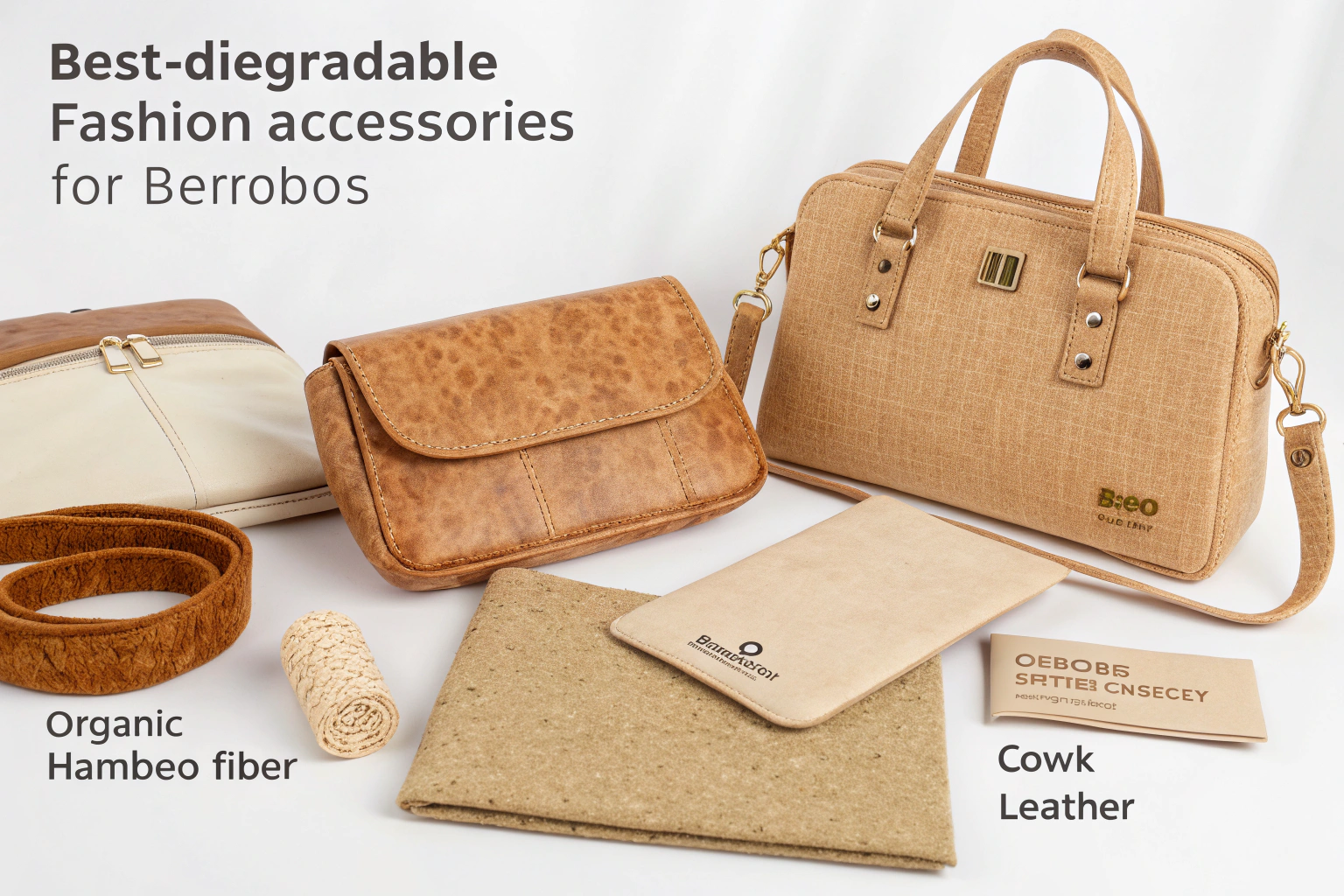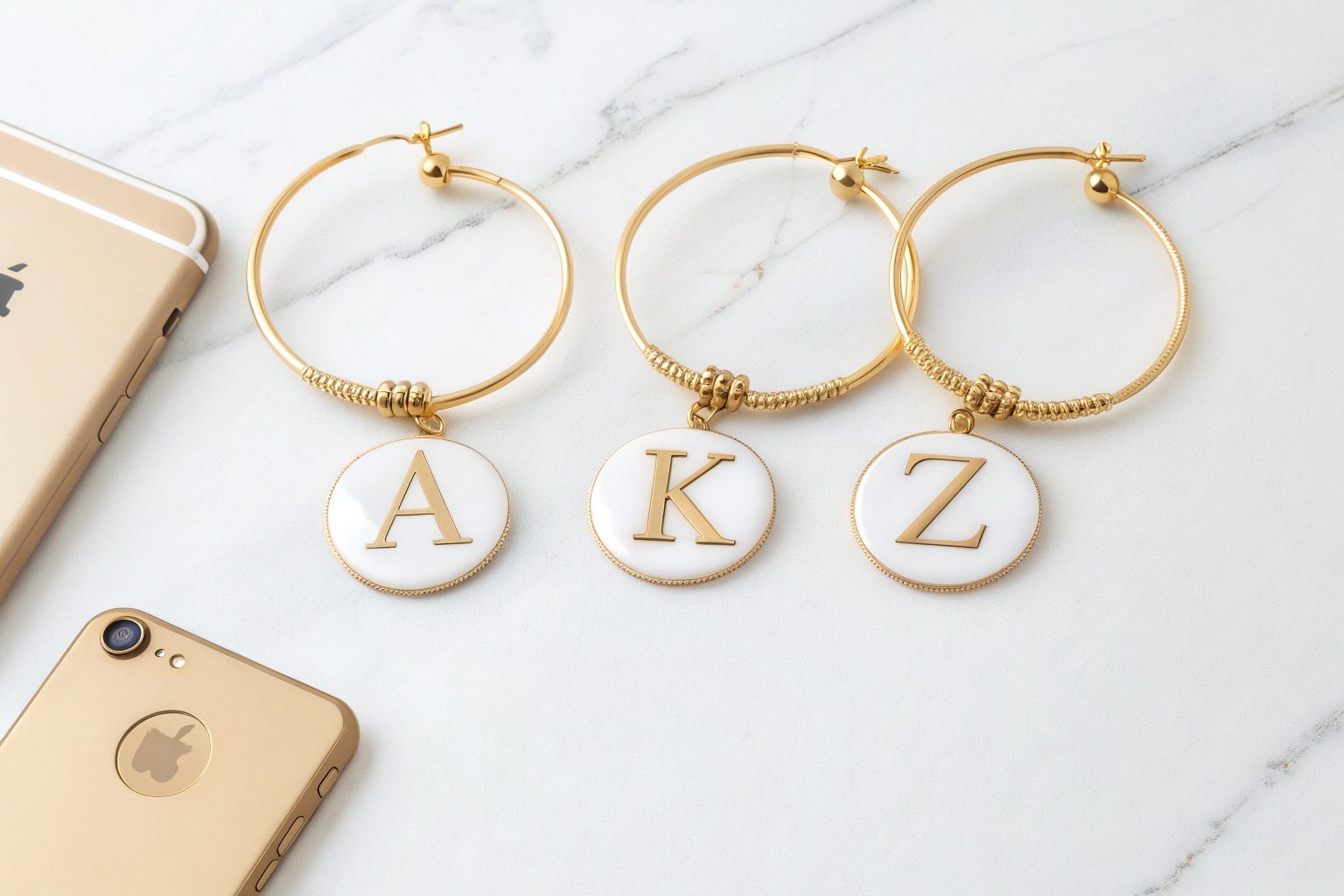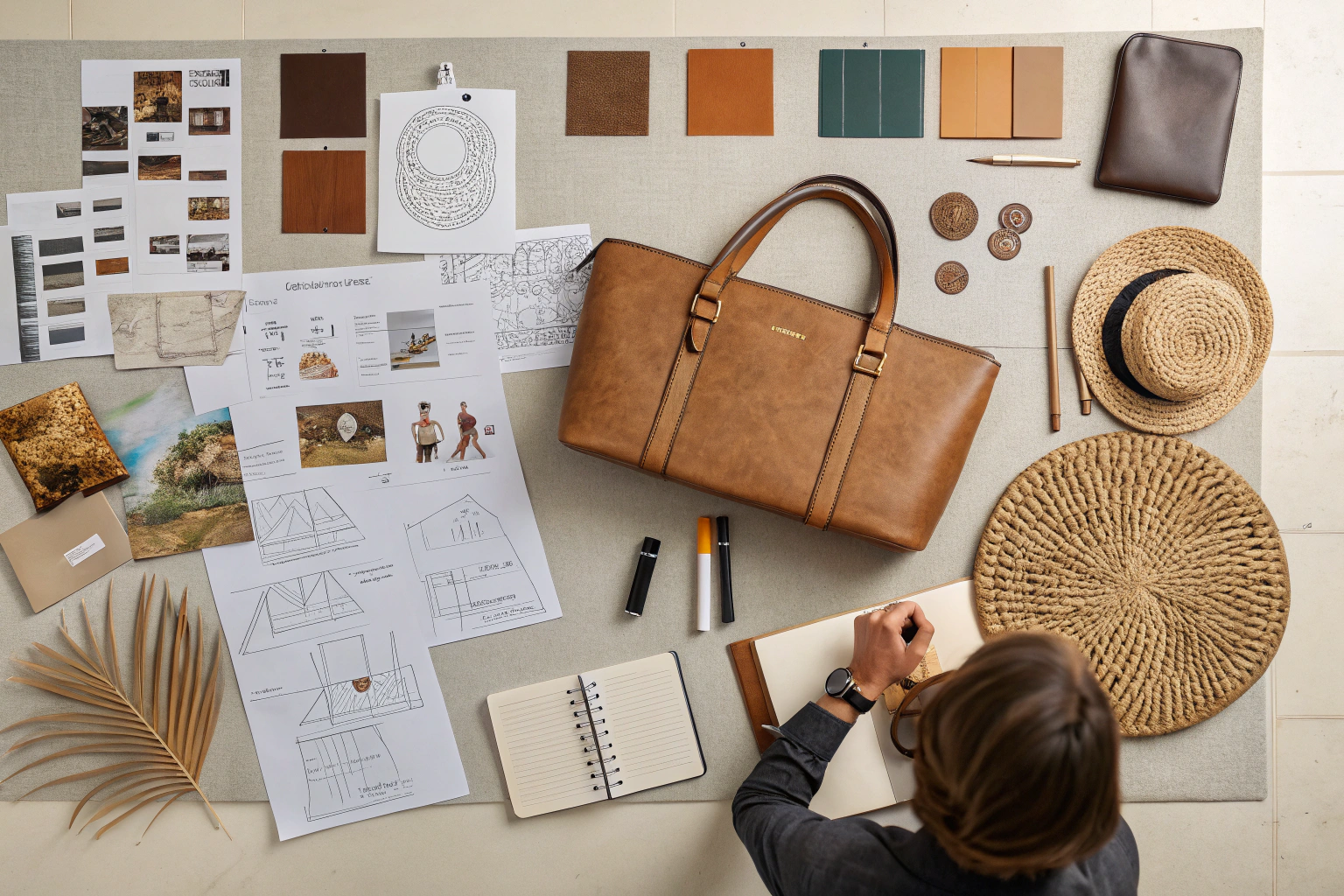As fashion buyers and sourcing managers, you face rising pressure from consumers who demand sustainable products. Many retailers are struggling to balance cost, design, and eco-friendly commitments. The fashion accessories industry is no exception—buyers want stylish belts, hats, scarves, or hair bands that are not only beautiful but also produced with responsible materials and shipped in eco-conscious ways.
The good news is that it is possible to source high-quality accessories made with biodegradable materials while also using eco-friendly shipping solutions. With the right factory partner, you can maintain attractive designs, reduce carbon footprint, and meet the growing demand for sustainability in North America and Europe.
The following guide explains how biodegradable materials can be used in accessories, what eco shipping options exist, and how you can integrate both into your sourcing strategy.
What Are the Best Biodegradable Materials for Accessories?
Many buyers feel confused about which biodegradable materials are suitable for accessories. Some materials look eco-friendly but may not decompose effectively, while others require specific conditions.
The best biodegradable materials for fashion accessories are organic cotton, hemp, bamboo fiber, cork leather, and PLA-based bioplastics. These materials decompose naturally, maintain durability, and are accepted by most eco-certification standards.
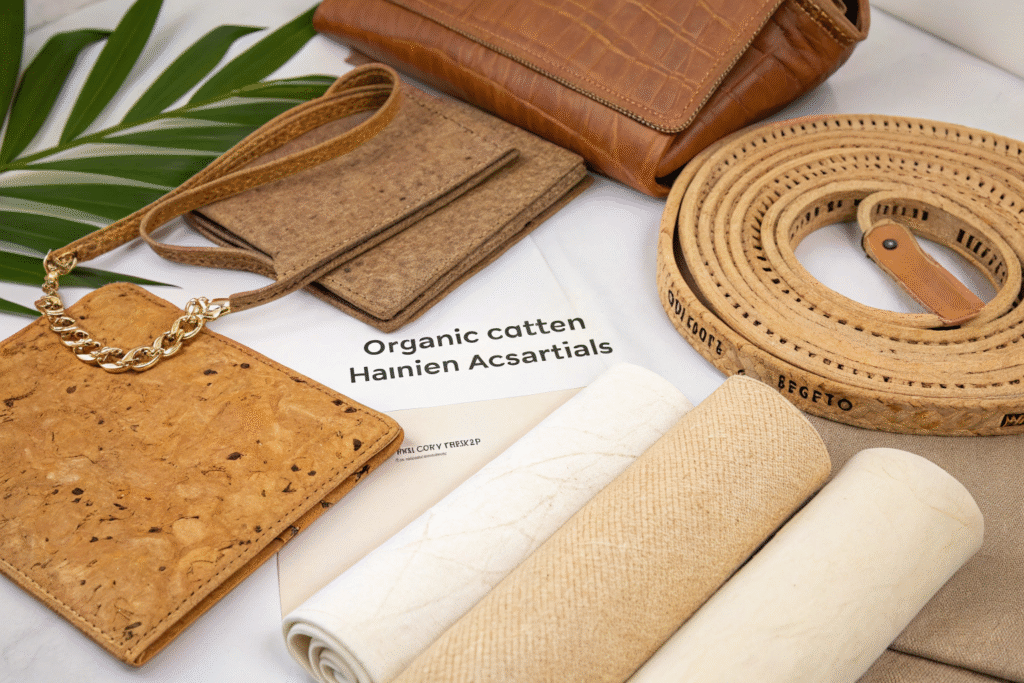
Sourcing biodegradable materials requires balancing style, quality, and eco-performance. Organic cotton and hemp are strong, breathable, and widely used in hats, scarves, and hair accessories. Bamboo fiber is soft and fast-growing, making it ideal for scarves and gloves. Cork leather, harvested from oak trees, is lightweight yet sturdy, perfect for belts and bags. PLA bioplastics, derived from corn starch, offer a flexible option for clips or packaging.
Why is organic cotton preferred?
Organic cotton avoids harmful pesticides and saves water compared to conventional cotton. According to the Organic Cotton Accelerator, certified cotton also helps improve farmer livelihoods. Buyers benefit because it is widely available, tested for quality, and accepted by eco-conscious retailers.
How does cork leather compare to PU leather?
Cork leather has natural water resistance and flexibility. Unlike PU leather, which is petroleum-based, cork decomposes back into the environment. It is hypoallergenic and adds a premium touch to accessories like wallets, belts, or handbags.
How to Ensure Eco-Friendly Packaging and Shipping?
Even when materials are sustainable, the packaging and shipping methods may not align with eco goals. Many buyers complain about unnecessary plastic and high-carbon transport.
Eco-friendly shipping means using recyclable packaging, biodegradable fillers, and consolidating cargo to reduce carbon emissions. Buyers can also choose ocean freight over air cargo and work with carriers offering carbon offset programs.
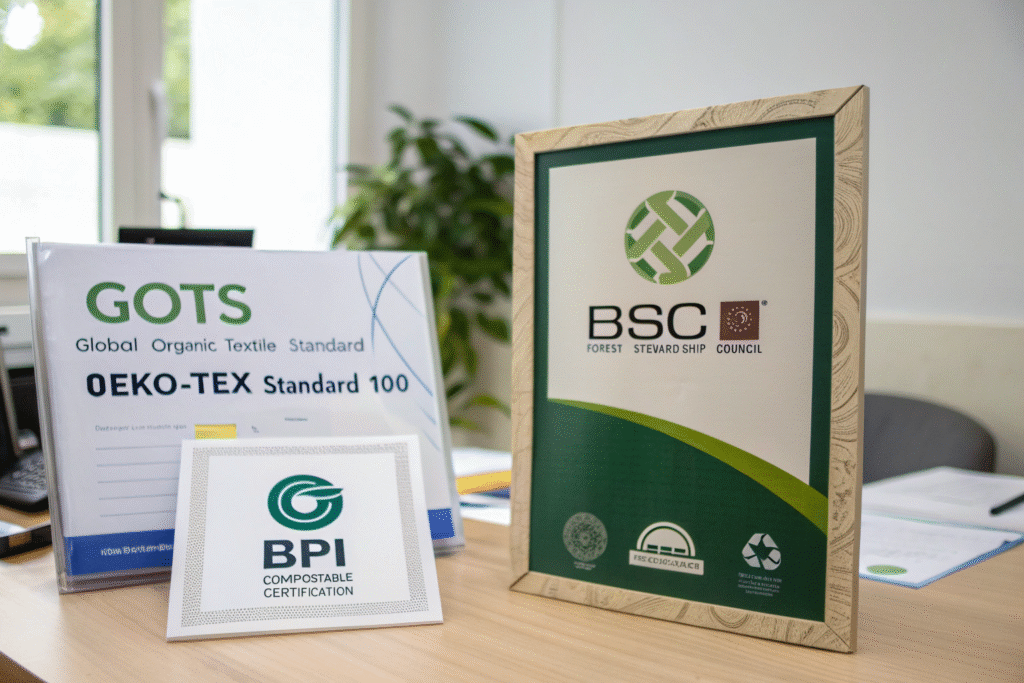
Brands can reduce waste by replacing plastic polybags with cornstarch-based compostable bags, kraft paper wraps, or mushroom packaging. Shipping efficiency improves when products are flat-packed, consolidated, and loaded in full containers. Many logistics companies such as Maersk and DHL Green Logistics offer carbon-neutral shipping options.
What is the role of compostable packaging?
Compostable packaging breaks down into water, CO₂, and biomass under compost conditions. According to Biodegradable Products Institute, certified compostable packaging ensures no toxic residue. Buyers using such packaging can market it as a key sustainable feature.
Should buyers choose sea freight or air freight?
Sea freight reduces carbon emissions significantly compared to air freight. For example, EcoTransIT data shows air freight can emit 40 times more CO₂ than ocean freight. Unless products are highly urgent, buyers should consolidate orders and ship by sea.
What Certifications Should Buyers Request from Factories?
Many buyers worry about greenwashing. Suppliers may claim to use eco-materials but cannot provide proof. Certifications play a critical role.
The most reliable certifications are GOTS (Global Organic Textile Standard), OEKO-TEX Standard 100, FSC (Forest Stewardship Council), and BPI Compostable Certification. These verify that materials and processes meet eco-friendly standards.
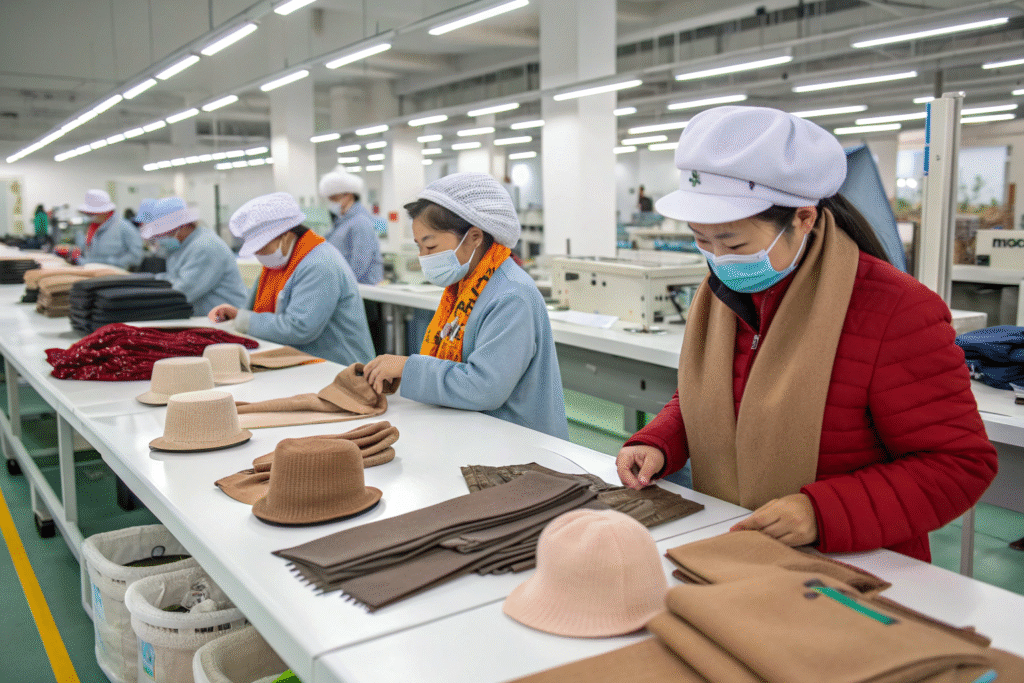
Factories with certifications provide confidence that sourcing aligns with brand sustainability goals. Buyers should request material certificates and even conduct audits. This is especially important when supplying to major supermarkets and fashion chains that demand compliance.
Why is GOTS certification important?
The GOTS standard covers every step of organic fiber processing, from farming to labeling. Buyers using GOTS-certified materials can market their products as globally recognized organic.
How does FSC certification apply to accessories?
The Forest Stewardship Council ensures that wood or cork materials come from responsibly managed forests. FSC-certified cork leather or paper packaging guarantees traceability and environmental responsibility.
How to Work with a Reliable Biodegradable Accessories Factory?
Many sourcing problems happen because factories lack experience in sustainable production. Buyers face delays, poor quality, or certification issues.
Working with an experienced factory in China that specializes in biodegradable accessories ensures smooth development, quality control, and eco-compliance. Zhejiang, where our factory is located, has modern facilities and professional project managers familiar with sustainability.
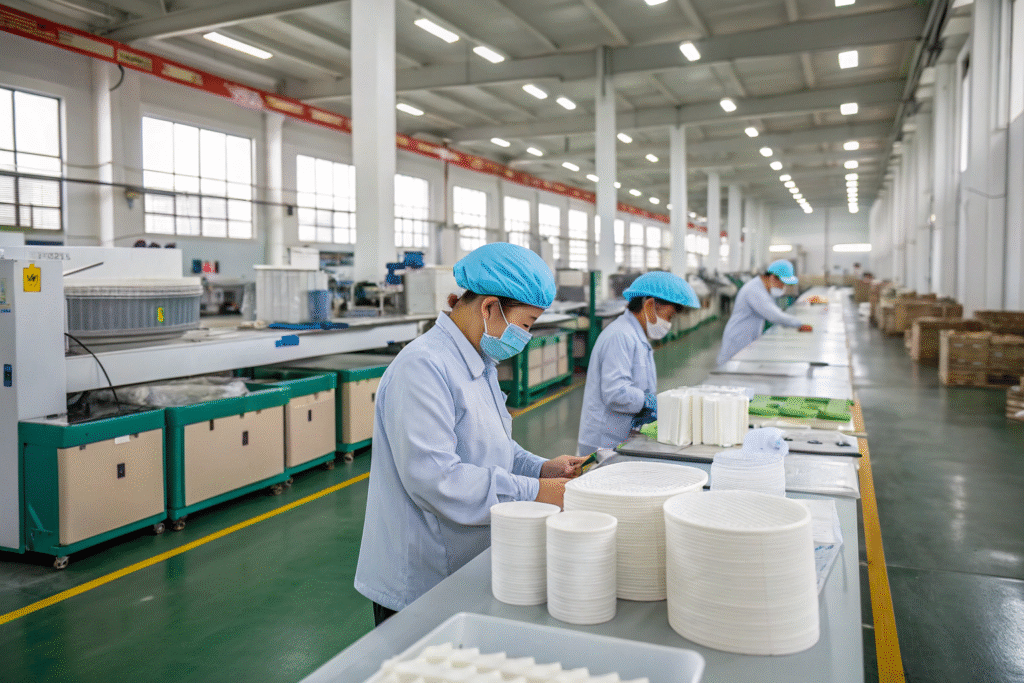
A reliable factory will offer material sourcing, design development, certification guidance, and logistics solutions in one package. Buyers should assess production capability, sample quality, and service responsiveness before placing large orders.
What should buyers look for in a supplier audit?
Audits should review factory cleanliness, certification records, and ISO quality systems. Buyers should also check if the factory uses renewable energy and sustainable waste disposal practices.
How do project managers add value?
Experienced project managers coordinate sourcing, design, production, and logistics. They ensure communication is clear and timelines are met, which is critical when sourcing for supermarkets and large retailers.
Conclusion
Sourcing accessories with biodegradable materials and eco shipping is not just a trend. It is a business strategy that allows you to meet customer demand, avoid greenwashing risks, and reduce your environmental footprint. By choosing materials like organic cotton, cork leather, or bamboo fiber, applying eco-packaging, using certified suppliers, and partnering with experienced factories, buyers can successfully balance quality, style, and sustainability.
If you want to explore eco-friendly accessory production with a reliable Chinese factory partner, we invite you to work with Shanghai Fumao (AceAccessory). Contact our Business Director Elaine at elaine@fumaoclothing.com to start developing your sustainable accessories today.

